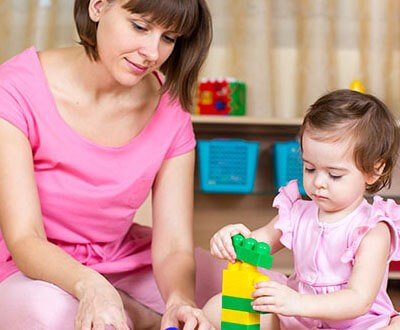
What Does a Montessori School Teach?
The first eight years of your children’s lives are their crucial formative years. This is a critical period where they experience rapid physical, cognitive, emotional, and social development and learn more quickly than at any other time.
Choosing the type of program to send your children to during their formative years is an important decision. The kind of education your children receive during this time sets the foundation that determines the course of their future. This is why you should select a school that identifies your children’s potential, nurtures their skills, and enables them to become agents of change in the future.
For many parents today, Montessori education has been instrumental in shaping their children’s personalities and helping them reach their full potential. What does a Montessori school teach? Below, we’ll discuss the Montessori approach to education and delve into the Seven Principles of Montessori education that help us at the American Montessori Campus shape your children’s future.
The Montessori Approach to Education
The approach to education applied by Montessori schools is characterized by an emphasis on guided freedom and respect for the children’s inherent capacity for psychological development. This method was developed by Italian educator and physician Dr. Maria Montessori to help children with special needs during the early 20th century but has now been adopted by over 22,000 Montessori schools worldwide.
The distinction between Montessori schools and other education systems is apparent the moment you step inside a classroom. Upon entering, you may immediately notice students actively engaged in individual and group activities. These are designed to cultivate their love for learning by allowing them to explore the knowledge of the world by themselves. Teachers play an active, crucial role during these activities by guiding the students on what activities to participate in to maximize their potential.
What Does a Montessori School Teach?: The Seven Principles of Montessori Education
The Montessori education model is based on the belief that all children are unique individuals with a natural ability to learn and develop independently. It operates on the following seven principles:
Movement and Cognition
Movement and learning go hand in hand in Montessori education. By encouraging movement inside the classroom, children are able to acquire deeper knowledge during this period of rapid development through their senses and experiences. Activities such as teaching them to wash tables, playing with musical instruments, or carrying out verbal instructions are instrumental in developing their creativity, mastery, and sense of responsibility.
Free Choice and Perceived Control
Montessori education recognizes that children are individuals who are capable of working independently. As such, they are given the opportunity to choose their own work and decide what activities to participate in. They can choose to work on their own, in pairs, or within a group to perform a task that they’re inspired to do. Sometimes, they may need guidance on their choices, which a teacher is glad to provide.
Intrinsic Rewards and Motivation
Countless studies have shown that children presented with rewards in exchange for learning are more likely to rush through the activity and be less likely to return, resulting in shorter retention of lessons. Montessori education forgoes the traditional giving of rewards, such as gold stars and merits, to develop different ways to motivate children intrinsically. As they say, the learning they get is its own reward.
Interest in Human Learning
In Montessori education, children are encouraged to pursue topics and issues related to their interests, which is also an essential aspect of intrinsic motivation. Based on this belief, curricula are designed based on topics and fields of study that are personally interesting to the children. For instance, a child demonstrating love for astronauts may be interested in learning about astronomy and the cosmos.
Learning From Context
Montessori education believes that contextual learning can lead to better outcomes for your children. Lessons being taught have embedded controls for error that help your children develop critical thinking, which can help them think and discover independently. This can lead to an increased desire for more learning when they feel the accomplishment of having mastered a material.
Interacting and Learning with Peers
Learning should not be limited to specific age groups. There are many lessons your children can learn from interacting with their peers at higher or lower levels. At the same time, there are also lessons that they can teach to other children. This collaborative learning style encourages a deeper understanding of a subject matter by reinforcing their own learning through the act of teaching.
Guidance From Teachers
Interactions between teachers and the children are crucial in determining the level of education they enjoy. To promote a better learning environment, teachers allow the children to experience the right amount of struggle in problems they undertake to facilitate critical thinking while not allowing them to feel frustrated over them. Teachers offer guidance to the children while allowing them to learn independently at a comfortable pace from lessons they are most interested in to provide the best learning experience.
About the American Montessori Campus
The American Montessori Campus is an award-winning Montessori school that provides children with a holistic learning environment that motivates and inspires them to become independent thinkers and lifelong learners. We place a premium on your children’s physical, emotional, and cognitive development by equipping them with the tools that help them thrive. Learn more about how we can help develop your child by getting in touch with us today. You can also call us at (972) 473-2600 to schedule a tour of our facilities.